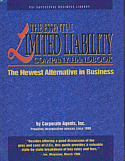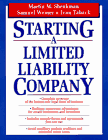| The Limited Liability Company |
The Limited Liability Company ("LLC") is a cross between a corporation and a partnership, LLCs have the liability protection of a corporation while also having the pass-through tax treatment of a partnership.
Limited Liability Companies are not taxed when classified as a partnership, rather the members pay tax, at the personal income rate, on the money which they receive from the limited liability company.
"The origin of this relatively new institution is generally attributed to the German Law of 1892, authorizing the Gesellschaft mit beschrnkter Haftung...Once established in Germany, the concept of the LLC had a very active and fast growth... Within a short period of time after enactment in Germany, the following countries joined the limited liability bandwagon: Portugal (1917); Brazil (1919); Chile (1923); France (1925); Turkey (1926); Cuba (1929); Argentina (1932); Uruguay (1933); Mexico (1934); Belgium (1935); Switzerland (1936); Italy (1936); Peru (1936); Columbia (1937); Costa Rica (1942); Guatemala (1942); and Honduras (1950). 13 Univ Pitt L Rev 193 (1952)."
We believe that the LLC will revolutionize relationships (see Relationship LLC) and the workplace. Employers have many labor options available to them. Employers may hire employees directly as "permanent" at-will employees, employee-leasing, use temporary and contract labor and outsource functions entirely. We believe that outsourcing work to an in-house independent employee-owned labor pool or Support LLC (tm) is the best possible labor solution. In addition, by way of an equity stake in the Support LLC, your company can have a shared investment in the success of this independent labor pool and achieve additional cost savings.






